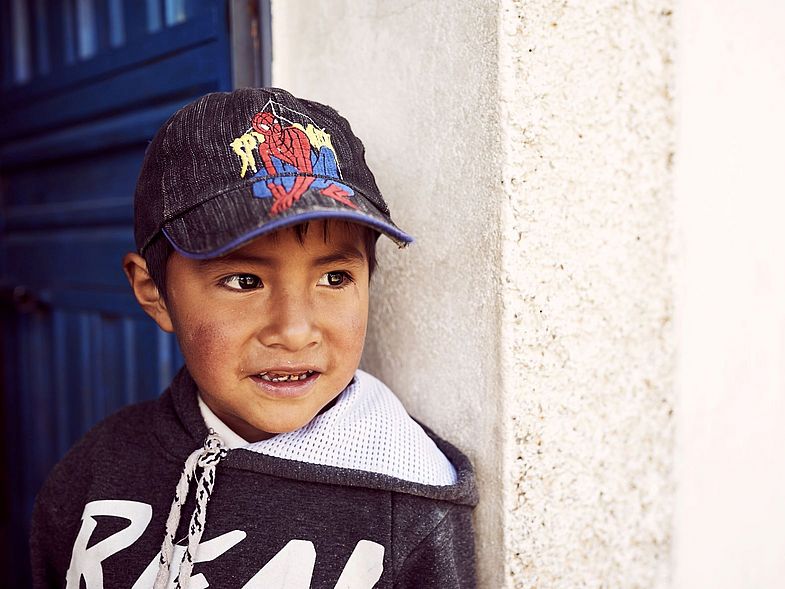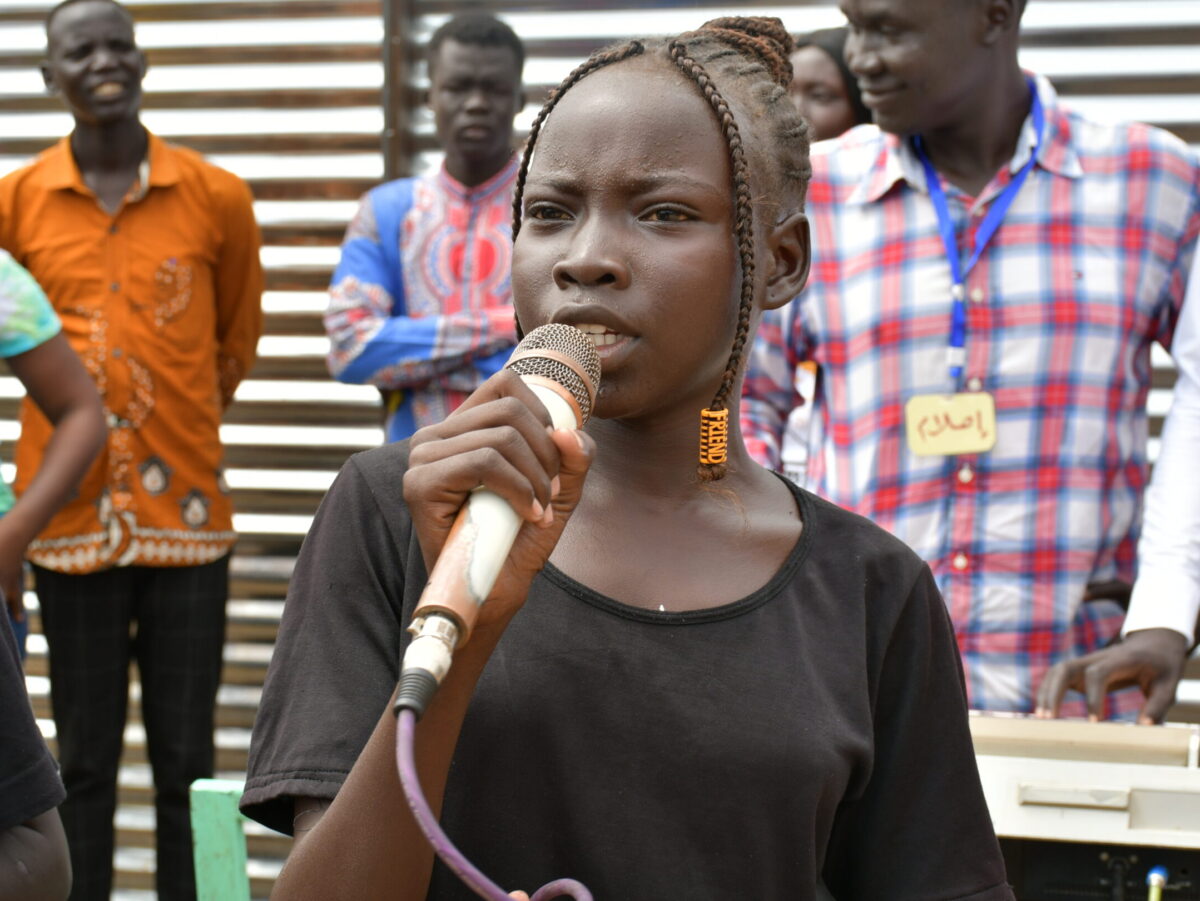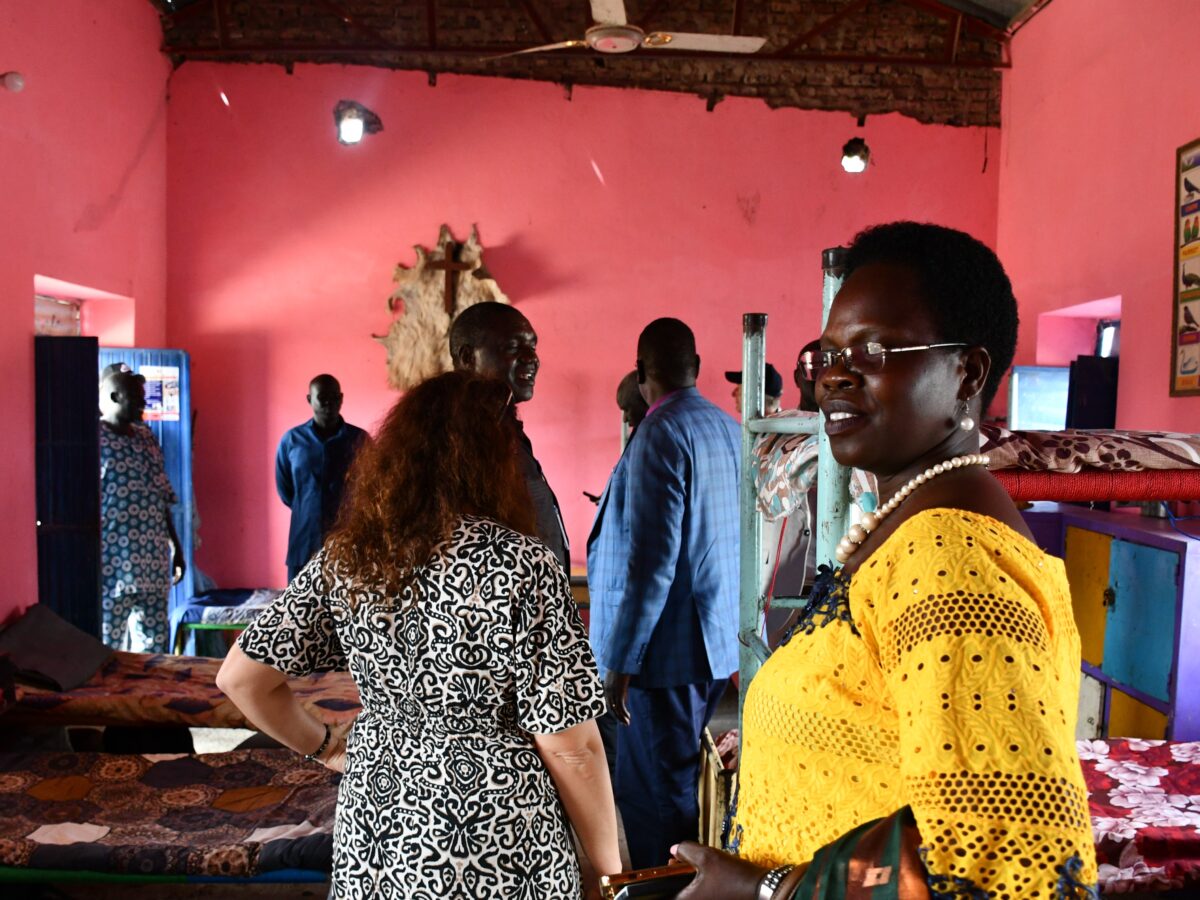The teacher gently grasps the adult student's hand, and a pencil is stuck between her wrinkled fingers. The tip glides across the paper and after a few seconds the teacher lets go, satisfied. She watches for a moment before turning her attention to the other students in the classroom.
Posters with grammar rules hang on the brightly painted walls in the room. The women sit on chairs with small wooden tables in front of open notebooks and write. All of them are from the surrounding area and are middle-aged to older. It is class time at our partner organization Alfalit in Chupa in the Puno region. For the first time, the women are learning to read and write.
In the Peruvian Andes, many women never had the chance to go to school. "How I would have loved to learn another profession!" says indigenous smallholder Francisca Itusaca de Mullisaca. Instead, she had to help out at home, taking care of the animals and cultivating the small piece of land.
Pandemic threatens school education
Peru's rising generations have it better. Most children and young people go to school. However, many lost out in distance learning during the pandemic. They lacked the technical equipment to participate in the lessons or found it difficult to learn on their own.
It is almost impossible to estimate how large the educational backlog is. The first students have been back in attendance classes since mid-March. And today, the Monday before Good Friday, the Easter vacations begin. During the summer break, Alfalit offered tutoring courses. In this way, the children in the Puno region were able to catch up on their schoolwork and learn new learning strategies.
The progress made in recent decades in the education of the rural population must not be undone by the lockdown. The offspring should be able to develop self-confidence from an early age and learn to express themselves. In this way, the children can later work together with their mothers to meet the needs of the people here in Puno.
Support for more self-confidence
Today, women are rarely to be found in politics. Yet in the Puno region in particular, it would be important for the entire population to be able to stand up for their needs. Around Lake Titicaca, there are more than thirty illegal mines that endanger people with heavy metal pollution. And violence against girls and women continues to be a major problem. That's why the voice of Peruvian women is important.
With the lessons, our partner organization Alfalit not only supports the women for everyday life, but also promotes their participation in the communities. In addition to reading and writing, the learning plan also includes communication skills, such as conflict management, consensus-seeking and assertiveness.
"Many women are making enormous progress and can express themselves better and better," says Dora Peña, an Alfalit employee. Francisca, too, now has more confidence in addressing strangers. And María says, "Participating in Alfalit is good for us in every sense."
The women also discuss factual issues of everyday life that are important for society and the family. With this tool, women can advocate for their needs and for those of their children, so that together they can contribute to a more just society.
Text: Samuel Rink
► More information on Mission 21's education support in Chile and Peru






